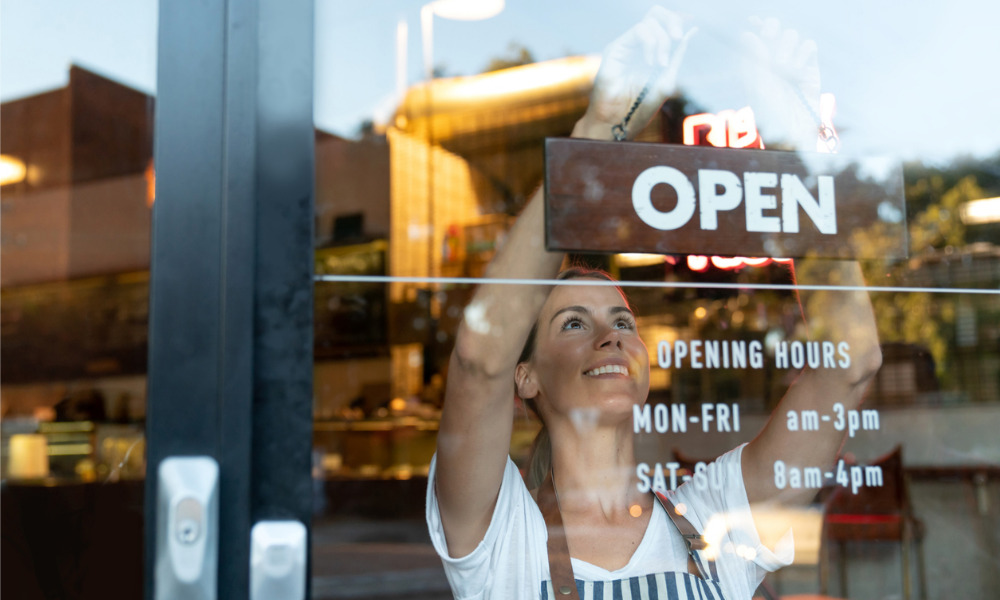Expert says there are certain prerequisites to keep in mind

It takes courage to start your own business. Melbourne broker John Ng recently told MPA, “If you’re running your own business, you’re a) very brave because you’re giving up superannuation and regular income and b) you’re mad. If you can harness how brave and crazy you are and turn it into something which makes money for you and your family, you’re on the right track.”
In a post-COVID world, starting your own business will come with certain prerequisites in order to deal with the uncertainty caused by the pandemic. According to entrepreneur and UBSS founder Alan Manly, there are five skills that those starting a business will need post-COVID.
- The ability to take risk
The act of starting your own business is also the act of creating your own job – a job that presumably wasn’t there before, said Manly. With this job creation comes a certain level of risk that is essential to take in order to achieve success
“You have to be prepared to take a risk to achieve a goal,” he said.
While you could be highly successful in your new venture, you could also fail. There are many possibilities around how this could happen, but the biggest risk could possibly be that no-one wants the service you are providing due to a high volume of competition and a lack of differentiation from the rest of the market.
“There may be enough of what you’re offering out there,” said Manly.
Read more: How COVID will change entrepreneurs
- Having a financial mindset
In order to really measure success, it’s important to be “hard-headed” and “hard-nosed” about money, said Manly. Just getting work isn’t enough to quantify if a business is viable.
“While they may get work, they have to consider whether it’s really worth their while,” he said. “One of the horrible things about some start-ups is they make a living but it burns up their own assets – they don’t have any profit to buy the new car when the old one wears out, or the new phone, which is a bill they didn’t plan on.”
He said entrepreneurs need to think about allocating resources and they also need to decide how much profit they need to make in order for the business to be viable.
- Being able to leverage experience
When you start your own business, it’s advisable not to enter into something that involves learning a new trade, said Manly. Instead, it’s better to utilise your existing skills and experience to offer something to the market that you are already good at.
Read more: Four things you must do to ensure your start-up survives its first year
“Being an entrepreneur is not the time to suddenly broaden your experience and take on new learning because you’re going to be burning up time and time will equate to money,” he said. “Everybody has some strengths – they do some things better than other things. It would be rather smart if they played to that strength.”
This could be something as common as people skills in order to sell the product or service that you are entering into. He said entrepreneurs shouldn’t underestimate their life experience from previous work.
- Accepting boredom
Starting a business is much like the famous description of the experience of war, in which 96% of the time is boredom and the remaining 4% terror, said Manly. When you embark as an entrepreneur, a lot of time is spent on cashflow and office work. Project management is an important skill to have when starting a business, because it helps to understand the concept of doing big things.
“You probably have to have an aptitude for calculating risks, thinking about numbers, and when things happen, trying to plan to deliver something on time,” he said. “You have to be disciplined.”
Read next: The six personality traits of entrepreneurs
- Being prepared
While you need to be brave enough to take a risk when starting a business, you also need to be prepared for the success or failure of the enterprise. It’s important to understand you are fallible, but that lady luck may be your companion.
“You’ll have good luck, and you’ll have bad luck,” said Manly.
He referred to entrepreneurs who opened restaurants or tourism ventures a couple of months before COVID hit. There was no way of knowing that a pandemic would shut down businesses across the world – yet new business owners everywhere took that risk when they opened trade.
“What will happen if it all goes wrong? Do you lose your house, do you lose your family? That’s the risk the entrepreneurs sometimes unwittingly take,” he said. “There’s no predicting it but you have to accept the fact there will be bad luck.
“You may have to figure I picked the wrong time, there was not much I could do about it. But you shouldn’t feel a failure because the business failed.”



